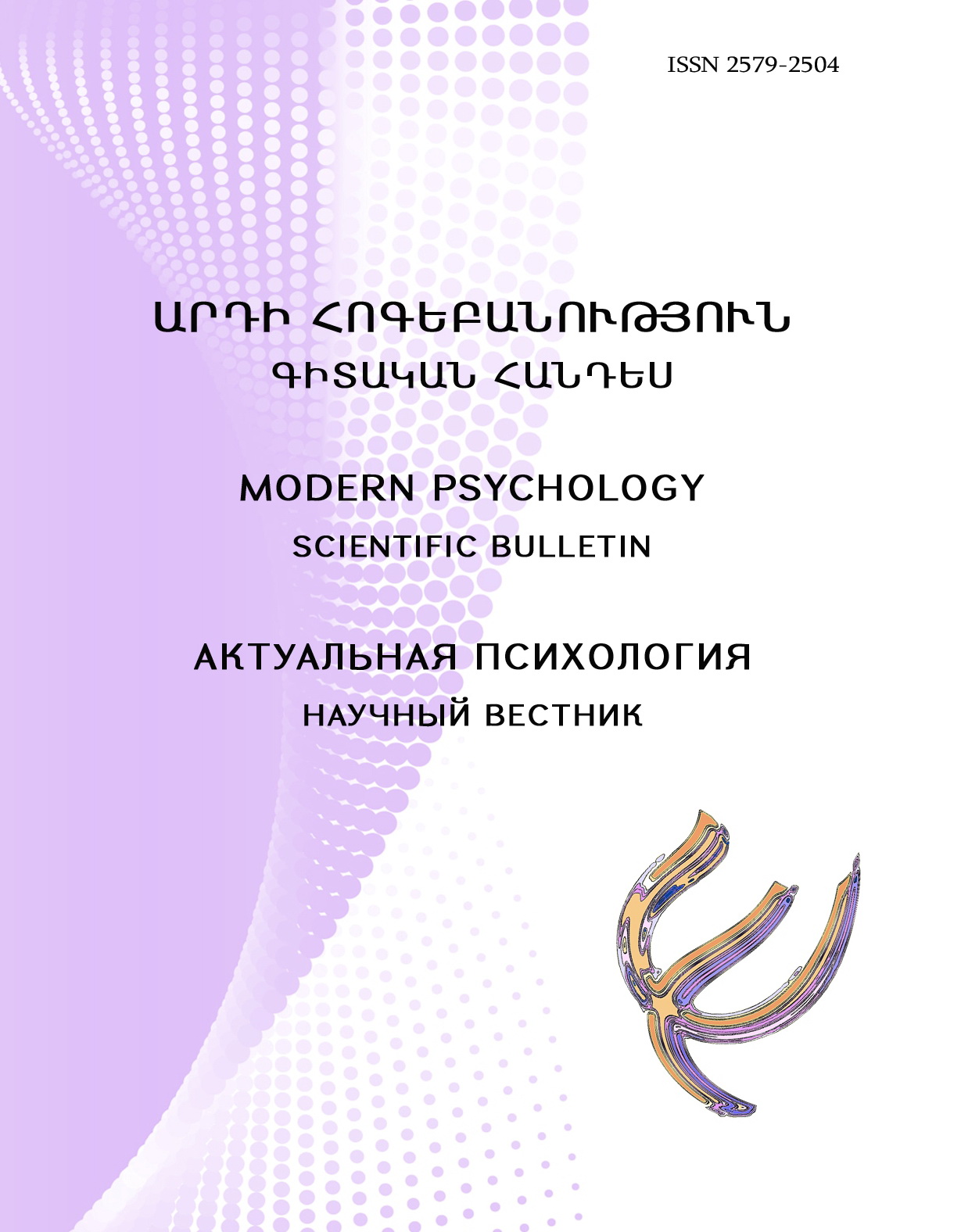CHANGES IN SOCIAL-PSYCHOLOGICAL BASIS OF THE MODERN SOCIETY IN THE CONDITIONS OF DEMOCRACY
DOI:
https://doi.org/10.46991/SBMP/2024.7.1.066%20Keywords:
democracy, behavior patterns, uncertainty, socio-psychological positions, values, modernization, sociocultureAbstract
The article is about the society that appeared in this new social situation due to democracy, which is facing drastic changes and which brings with it not only the need for the restructuring of the society, the introduction and operation of new social institutions, but also the cultural, socio-psychological support of the society. need for change. Complex shifts in the social and spiritual life of society take place, which lead to a change in the socio-psychological basis of society and a transformation of human existence.
These new democratic conditions, to a greater or lesser extent, also affect the nature and content of human relations, as well as the manifestation of behavior. Since civilization is based on the vital needs of a person, they are also an incentive to make human life more active. A democratic society becomes multi-faceted and alternative, and such a moral and psychological atmosphere is created, when a person not only does not feel cultural inferiority, but also becomes a being more adaptable to the new lifestyle and lifestyle. A person does not indicate a social affiliation, but also characterizes a certain worldview, way of thinking and lifestyle.
The purpose of the research is the socio-philosophical and psychological analysis of the basis of social reality and the problems of making modern challenges viable in the conditions of democracy.
References
1. Marcuse G., Eros and civilization. One dimensional person. Study of the ideology of a developed industrial society, M., AST, 2003, p.319.
2. Gavrov S., Sociocultural tradition and modernization of Russian society. M., MGUKI, 2002, p.146.
3. Harutyunyan M., Modern Armenian society and the philosophy of aliendted consciousness, Yerevan, «Nairi», 2014, p.244.
4. Dahl R. Democracy and its critics. M., 2003.
5. Irkhin Yu., On the issue of cross-cultural research: East-West// Sociological research. 2005, N.2, p.131-135.
6. Fedotova V.G. Non-classical modernizations and alternatives to modernization theory. - ''Questions of Philosophy'', M., 2002, No. 12, art. 44-45.
7. Eisenstadt S. The Contemporary Scene-Multiple Modemrnities-The Annals of the International Institute of Sociology. Ed.E.Scheuch, D.Sciulli, Leiden;BRILL 2000, Vol. 7, p.11.
8. Munck G.L. Leff C.S. Modes of Transition and Democratization: South America and Eastern Europe in Comparative Perspective. Comparative Politics, vol.29, N3,1997.
9. Linz J. Stepan A. Toward Consolidated Democracies//Jurnal Democracy. 1996. Vol.7, N2.
Downloads
Published
Issue
Section
License
Copyright (c) 2024 Nelli Alaverdyan

This work is licensed under a Creative Commons Attribution-NonCommercial 4.0 International License.



